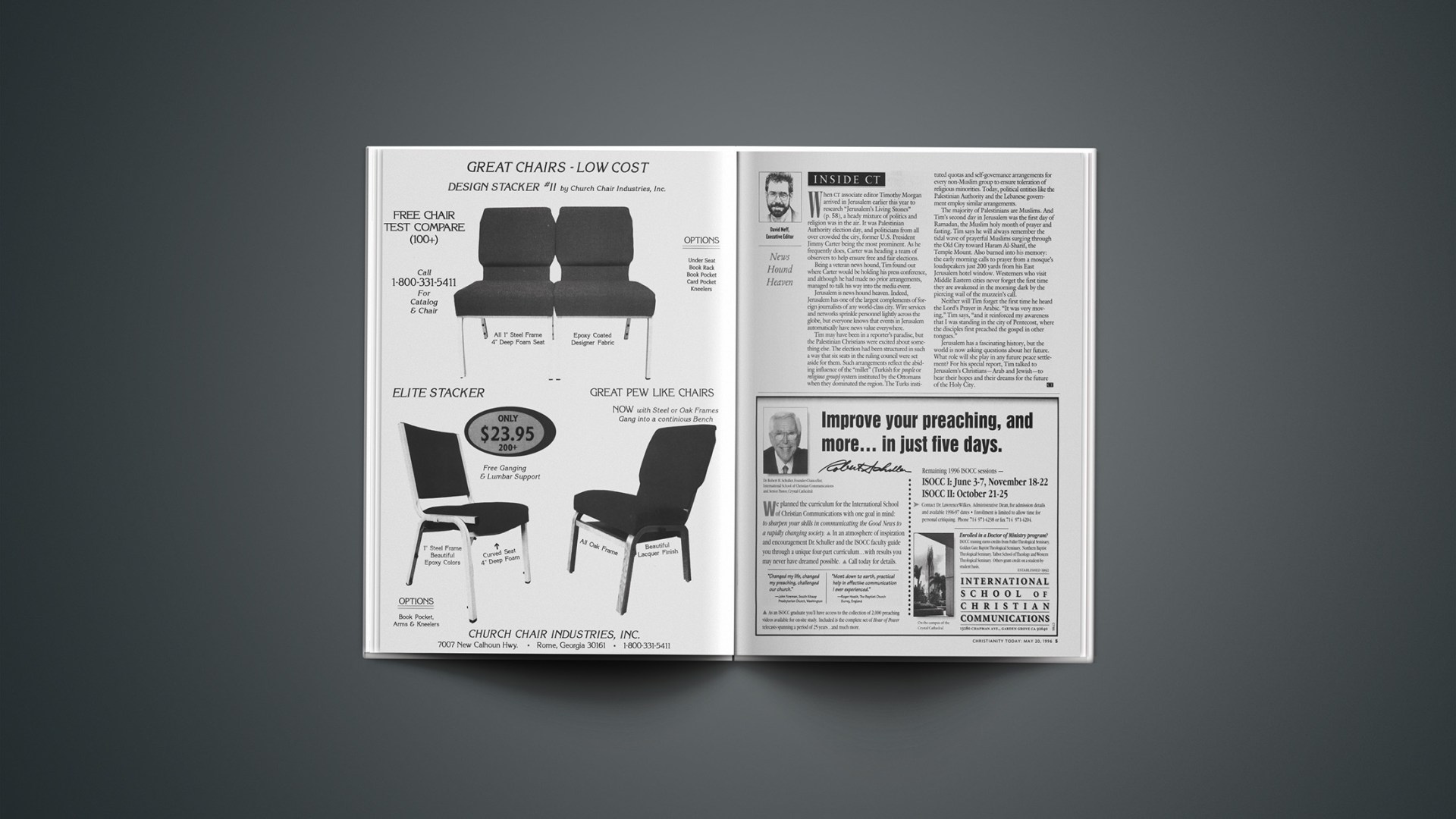When CT associate editor Timothy Morgan arrived in Jerusalem earlier this year to research “Jerusalem’s Living Stones” (in this issue), a heady mixture of politics and religion was in the air. It was Palestinian Authority election day, and politicians from all over crowded the city, former U.S. President Jimmy Carter being the most prominent. As he frequently does, Carter was heading a team of observers to help ensure free and fair elections.
Being a veteran news hound, Tim found out where Carter would be holding his press conference, and although he had made no prior arrangements, managed to talk his way into the media event.
Jerusalem is news hound heaven. Indeed, Jerusalem has one of the largest complements of foreign journalists of any world-class city. Wire services and networks sprinkle personnel lightly across the globe, but everyone knows that events in Jerusalem automatically have news value everywhere.
Tim may have been in a reporter’s paradise, but the Palestinian Christians were excited about something else. The election had been structured in such a way that six seats in the ruling council were set aside for them. Such arrangements reflect the abiding influence of the “millet” (Turkish for people or religious group) system instituted by the Ottomans when they dominated the region. The Turks instituted quotas and self-governance arrangements for every non-Muslim group to ensure toleration of religious minorities. Today, political entities like the Palestinian Authority and the Lebanese government employ similar arrangements.
The majority of Palestinians are Muslims. And Tim’s second day in Jerusalem was the first day of Ramadan, the Muslim holy month of prayer and fasting. Tim says he will always remember the tidal wave of prayerful Muslims surging through the Old City toward Haram Al-Sharif, the Temple Mount. Also burned into his memory: the early morning calls to prayer from a mosque’s loudspeakers just 200 yards from his East Jerusalem hotel window. Westerners who visit Middle Eastern cities never forget the first time they are awakened in the morning dark by the piercing wail of the muzzein’s call.
Neither will Tim forget the first time he heard the Lord’s Prayer in Arabic. “It was very moving,” Tim says, “and it reinforced my awareness that I was standing in the city of Pentecost, where the disciples first preached the gospel in other tongues.”
Jerusalem has a fascinating history, but the world is now asking questions about her future. What role will she play in any future peace settlement? For his special report, Tim talked to Jerusalem’s Christians–Arab and Jewish–to hear their hopes and their dreams for the future of the Holy City.
Copyright © 1996 Christianity Today. Click for reprint information.










